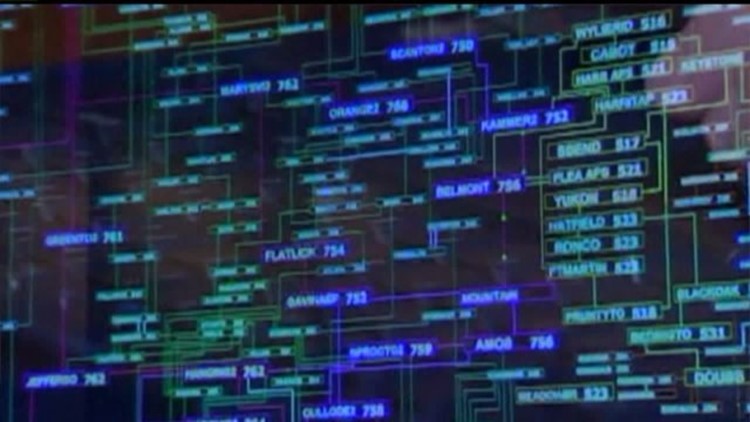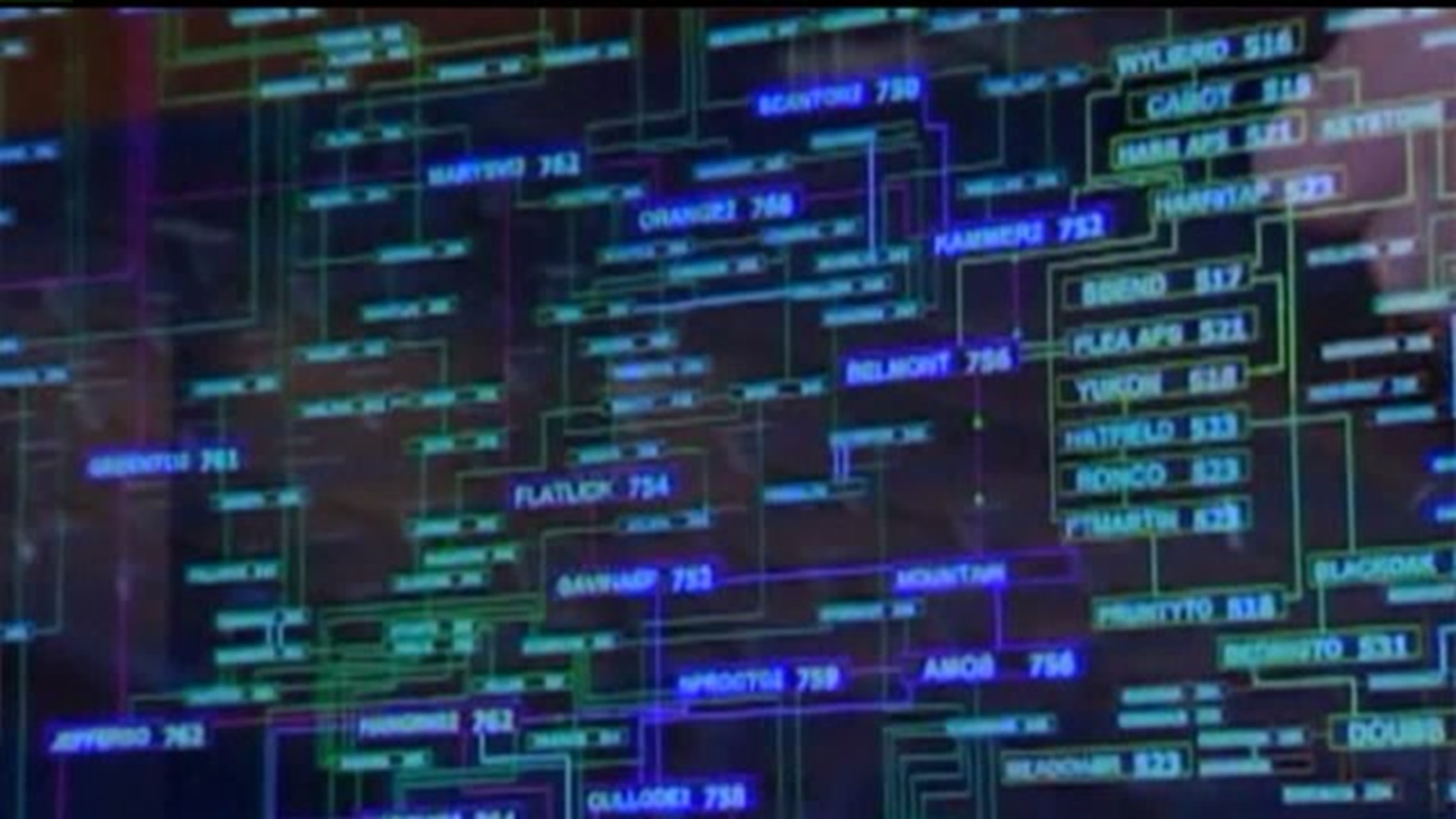INDIANAPOLIS, Ind – Less than a year ago, Kelly Hipskind and his family were living in a beautiful home in Carmel. The entrepreneur had just sold his company to a larger software developer, when he had a bold idea.
“What if we just sold everything, bought an RV and traveled around the country,” he asked his wife.
Before long, Kelly and his wife had sold their home, both cars, and most material belongings. The couple, along with their daughters of 2 and 3 set off on adventure of living “off the grid.”
“To us it was important to reflect and turn down the noise of the Internet and phones,” Kelly said.
Hoping to spend as much time in as many states as possible, and focusing attention on each other and their spiritual journey, the Hipskinds started closing down Internet accounts.
“A lot of people, when we said we were going to delete our Facebook accounts, were like AAHH,” Kelly laughs. “It’s like you’re going to abandon the real world.”
Kelly sees it differently. After shutting down their Facebook, Twitter, Instagram and LinkedIn accounts, he believes they are rediscovering the real world.
“It was a breath of fresh air,” Kelly recalls about shutting down social media. “It was very refreshing.”
Kelly and his wife now share a Facebook account which they use only for sending direct messages to family. They have a joint bank account, but try to rely on a safe they take with them. They don’t receive any utility bills, other than what they pay at campgrounds at their stops. With no permanent address, they rely on a friend to periodically check a PO box and send their mail to wherever they are that week.
“We found ourselves focusing on each other a little bit more,” Kelly said. “It was it was more quality time.”
Despite changing their lifestyles and going “off the grid,” the Hipskinds haven’t completely disappeared. In fact, cyber security experts say doing that is virtually impossible in modern life. And it will only be more difficult for future generations.
“Right now, a one study found that about 92 percent of all 2 year olds in the United States already have an online footprint,” said Indiana State Police Lt. Charles Cohen.
Cohen specializes in Cyber Crimes investigations. He recalls a recent case where investigators were able to track down a suspect who just couldn’t keep himself offline.
“One individual a few years back who did all those things, cancelled bank accounts, cancelled credit cards, just couldn’t stay away from online gaming,” Cohen said “He was able to be located in another country because of his habit to engage in online gaming activities.”
Cyber Defense Specialist Leo Doyle, with the Indiana Division of Homeland Security says most people have no idea how many databases are storing and sharing their information on any given day.
“Hundreds of servers,” Doyle said. “Whether it’s financial information, whether it’s credit information, on hundreds of servers.”
Simply deleting your social media accounts, email, credit cards and other online banking isn’t enough. Much of your personal information that has been online is likely to stay there. Entities called information aggregators make their living by collecting, sharing and selling the personal information they’re able to collect from online transactions and other sources.
Just clicking on a website can send bits of your digital life to companies that benefit from learning your habits.
“Google has a complete background on who you are and where you are,” Doyle said. “Even if you don’t use Google searches, any time you go to a site, oftentimes there’s Google ads there, and they can see your browsing habits and know where you’re going to.”
Even if disappearing completely is impossible, Doyle and other experts say there are ways to greatly reduce your online footprint.
“You can do things like anonymous searches with different search engines, not just the main search engines,” Doyle said. “Take yourself out of social media, don’t do blogging. Do email only to people you know, not to strangers.”
Others suggest going farther, like unsubscribing to email distribution lists, deleting your search engine results, asking data clearing houses to remove your information, even deleting your email accounts completely. Some have suggested falsifying information on accounts that can’t be removed.
But even doing all these things is no guarantee of success.
“Unless you’re totally cash basis, and you don’t live in a building, you live in a camp or whatever, you’re going to be somewhere on the grid and be searchable on the Internet,” Doyle said.
And removing yourself from the Internet doesn’t make you untraceable. Property records and utility account information can be stored for many years after a person moves to a different location.
For those who don’t want to change their entire lifestyle, but do want to better protect their online information, there are simpler ways to secure it.
Lt. Cohen says most people need to be more creative when coming up with passwords for online accounts.
“You want to have separate passwords so that every password you have is different,” Cohen said. “And many of us have 20, 30, 40 or more different password systems.”
In the case of a data breach like Anthem, Target or Home Depot, Indiana is one of few states that allows you to immediately freeze your credit. That can ensure that anyone who gets ahold of your information can’t open any fraudulent accounts with it.
For the Hipskinds, their “off the grid” journey continues. They’ve spent time in 12 states in less than a year, documenting fun experiences in each one. They hope to see all 50 before they’re done.
But they also know their situation is temporary. By the time their daughters reach school age, they plan to settle down and buy a home again. But for now, they’re enjoying a mobile and mostly anonymous lifestyle.
“I can honestly say that the things that we’ve seen and done are just a backdrop,” Kelly says. “The things that are the most important is the quality of time with the family.”




